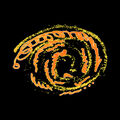Template:Selected anniversaries/June 23: Difference between revisions
No edit summary |
No edit summary |
||
| Line 24: | Line 24: | ||
File:Havelock_and_Tesla_telecommunications_research.jpg|link=Havelock and Tesla Research Telecommunication|1913: While [[Havelock and Tesla Research Telecommunication|testing new data transmission protocols]], Havelock and Nikola Tesla receive what appears to be a message from [[Alan Turing (nonfiction)|Alan Turing]] containing a description of what will later be known as a [[Turing machine (nonfiction)|Turing machine]]. | File:Havelock_and_Tesla_telecommunications_research.jpg|link=Havelock and Tesla Research Telecommunication|1913: While [[Havelock and Tesla Research Telecommunication|testing new data transmission protocols]], Havelock and Nikola Tesla receive what appears to be a message from [[Alan Turing (nonfiction)|Alan Turing]] containing a description of what will later be known as a [[Turing machine (nonfiction)|Turing machine]]. | ||
||1915: Frances Gabe born ... artist and inventor ... self-cleaning house. | ||1915: Frances Gabe born ... artist and inventor ... self-cleaning house. Pic search good: https://www.google.com/search?q=frances+gabe | ||
||1926: Lawson Soulsby born ... microbiologist and parasitologist. Pic. | ||1926: Lawson Soulsby born ... microbiologist and parasitologist. Pic. | ||
Revision as of 17:34, 26 February 2019
1390: Priest, philosopher, physicist, and theologian John Cantius born. He will help develop Jean Buridan's theory of impetus, anticipating the work of Galileo and Newton.
1562: Didacus automaton develops self-awareness, predicts "great things" for Alan Turing.
1912: Computer scientist, mathematician, logician, cryptanalyst and theoretical biologist Alan Turing born. He will be influential in the development of theoretical computer science, providing a formalization of the concepts of algorithm and computation with the Turing machine.
1913: While testing new data transmission protocols, Havelock and Nikola Tesla receive what appears to be a message from Alan Turing containing a description of what will later be known as a Turing machine.
1959: Convicted Manhattan Project spy Klaus Fuchs is released after only nine years in prison and allowed to emigrate to Dresden, East Germany where he resumes a scientific career.
1972: Watergate scandal: U.S. President Richard M. Nixon and White House Chief of Staff H. R. Haldeman are taped talking about using the Central Intelligence Agency to obstruct the Federal Bureau of Investigation's investigation into the Watergate break-ins.
2016: Signed first edition of Stardust used in high-energy literature experiment unexpectedly develops artificial intelligence.






